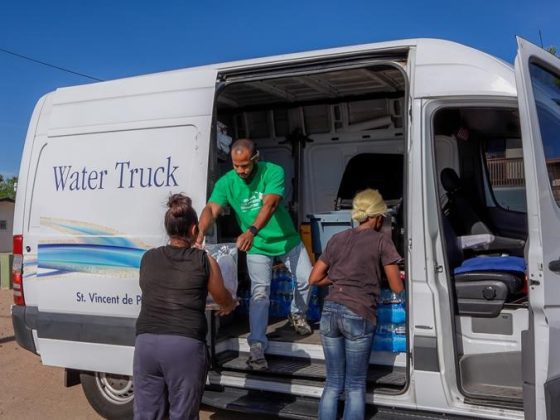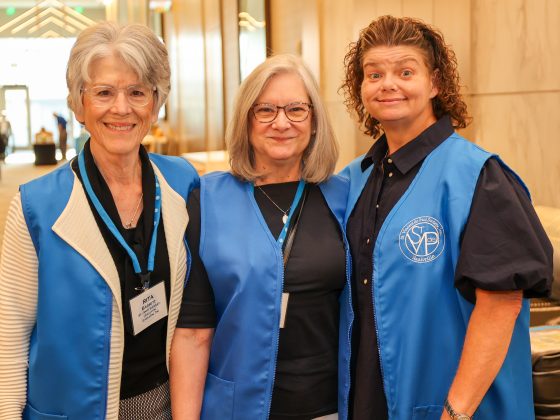Vincentians serve in hope! Not merely the hope of a paid light bill, but the hope of Christ’s promise, the hope of new life, and the hope of a church that “is ever renewing itself…” [Ozanam in Baunard, 20]
The neighbors we serve often lack hope – any kind of hope. Burdened with material needs, with worries for their children and for their future, it is difficult to offer eternal hope when, as Mahatma Ghandi once explained, “To them God can only appear as bread and butter.”
In our empathy for the neighbor, it can be all too easy for us at times to feel overwhelmed, burned out; to share the neighbor’s despair rather than the Savior’s hope. Our neighbor’s continuing struggles weigh us down, and we allow ourselves to forget the great power of love over even the greatest forms of deprivation.
Whatever resources our Conference has, however great or small, we offer freely and generously. And when we offer food to the neighbor who can only see God as bread, remember that Christ offers Himself to us as bread. All of the material assistance we give is foremost a sign of Christ’s love. In that love, we welcome the neighbor into communion with us, and with the God who sent us.
It is for love alone that we continue, through home visits, through special works, and through systemic change programs, to walk with people out of poverty. It is for love alone that we can say, “this relationship does not end when we pay the bill this week. You matter.”
There is never a need to be frustrated, or to wonder why the land will never lack for needy persons. As St. Vincent taught, it is through our humble devotion to God and our charity toward the neighbor that they might see the beauty and holiness of our faith. [CCD VIII:208] The needs we seek to alleviate may be of this earth, but the hope we bring is not.
We gather on our home visits in His name, and He, as He promised, is there. He is there in the suffering of the neighbor, and He is there also in the prayer and in the hope that we offer, wiping away all tears, saying “Behold, I make all things new.”
Contemplate
How can I better share hope?



